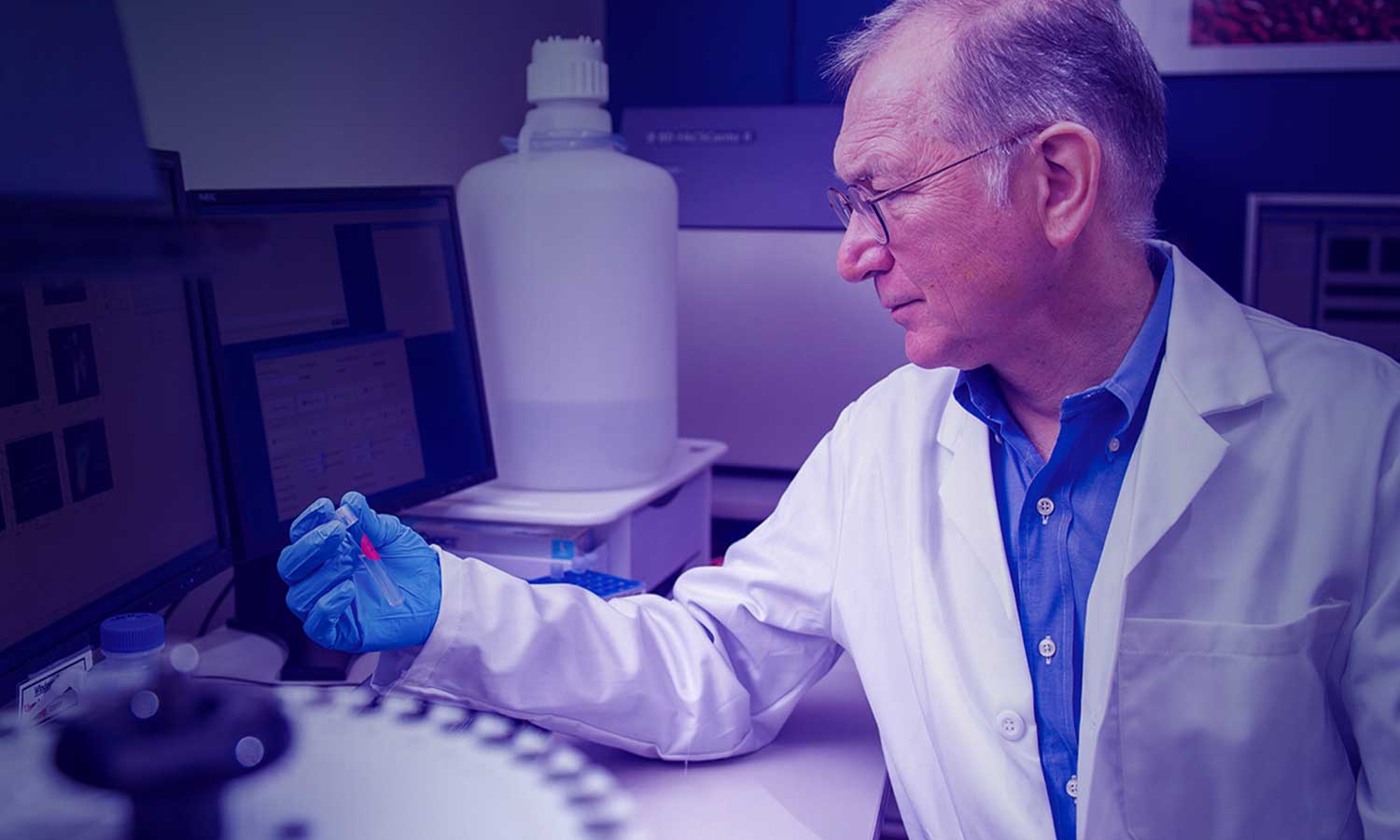Many of today’s most important advances in cancer care trace their origins to basic science—research that uncovers biology’s fundamental principles. Research by Dana-Farber’s William G. Kaelin Jr., MD, for example, revealed how cells sense and respond to oxygen. That basic research led to new medicine for kidney cancer, and could do the same for cardiovascular disease, macular degeneration, and anemia.
The generous support of more than 700 donors over the years helped to fund Dr. Kaelin’s pursuit of innovative ideas that led to this breakthrough. This is but one example of how gifts to Dana-Farber have financed breakthroughs in the lab that speed to the bedside as new treatments for many types of cancer.
Another example is the work of Dana-Farber’s Gordon Freeman, PhD, to unravel the workings of PD-1, a protein that was known to help cancer cells evade the immune system. Two decades ago, Freeman and his colleagues discovered a pair of partner molecules, PD-L1 and PD-L2, that work with PD-1 to protect normal cells from being mistakenly attacked by immune cells. Cancer exploits this interaction to switch off the body’s anti-tumor response. This finding opened up a whole new field of immunotherapy research and resulted in FDA approvals of PD-1 therapies for several cancers.
Dana-Farber is at the forefront of curiosity-driven science that ultimately translates lab discoveries into medicines. For example, several years ago, Dana-Farber’s Pasi Jänne, MD, PhD, set out to develop a new targeted therapy for patients with a drug-resistant form of lung cancer. Working with Dana-Farber colleague and structural biologist, Michael Eck, PhD, he generated a detailed structural map of the protein he wanted to target, and in collaboration with Dana-Farber chemists, designed a molecule that could bind to and inhibit the target protein. Thanks to the many cross-disciplinary collaborations that occur regularly at Dana-Farber, the project went from concept to preclinical testing in fewer than six months, setting the stage for clinical trials of drugs similar to this compound.
Supporting The Dana-Farber Campaign will foster this constant flow of ideas among our experts, enabling us to pursue ideas that could be the next home run in cancer care.
For more information or questions, please contact Mark Veligor.



